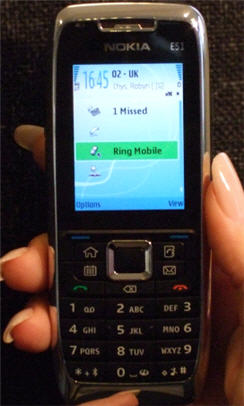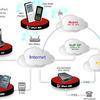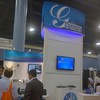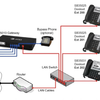 Fixed Mobile Convergence (FMC) enables users to use a single phone handset that connects to both cellular and corporate wireless networks thus enabling users to carry a single phone device to communicate with business associates, family, and friends, no matter where they are. The obvious benefit besides the cost savings of using a single phone device is employee productivity. A new study by OnRelay's own live deployment data reveals when FMC technology works, user penetration and hardware cost savings follow along with increased customer responsiveness since the employee is able to take inbound business calls anywhere. FMC also enables advanced PBX functionality such as call transfer, call conferencing, on-hold, etc.
Fixed Mobile Convergence (FMC) enables users to use a single phone handset that connects to both cellular and corporate wireless networks thus enabling users to carry a single phone device to communicate with business associates, family, and friends, no matter where they are. The obvious benefit besides the cost savings of using a single phone device is employee productivity. A new study by OnRelay's own live deployment data reveals when FMC technology works, user penetration and hardware cost savings follow along with increased customer responsiveness since the employee is able to take inbound business calls anywhere. FMC also enables advanced PBX functionality such as call transfer, call conferencing, on-hold, etc.Here's the interesting report info put out by OnRelay:
OnRelay today released the first call data from a successful Fixed Mobile Convergence (FMC) deployment. The study, on over 36,000 calls, provides insight into the user penetration achievable by cellular FMC technology and its affect on business telephony use.
OnRelay MBX is a complete cellular FMC, or mobile PBX, solution that allows companies to replace desk phones with mobile phones. Today's study comes from a European manufacturing company, which has seen take up of MBX by a significant 68% of staff. This figure demonstrates deep penetration of the technology, which saves the company at least £33 per user per month on every desk phone replaced.
According to OnRelay's study, almost one third of MBX users migrated to IP telephony without installing or needing desk phones. The remaining two thirds actively use MBX while keeping the desk phone for occasional use.
Significantly, the study shows that 45% of all calls logged were outbound, with a call completion rate equivalent to that of GSM. This means that staff with MBX use their mobiles in business mode - placing their business calls via their office phone system. The company benefits from ensuring all business communication happens via the corporate dial plan, and staff benefit from clear separation of personal and business telephony.
"The strongest business case in the world can't defend a technology that no one will use," notes OnRelay CFO Marie Wold. "OnRelay has long proven the cost benefit of replacing desk phones with mobile phones. This study shows that when employees are offered a complete desk phone alternative like MBX, they like it and, quite simply, will use it. The upfront savings on hardware make a critical difference in today's economy."
OnRelay's study further shows that 72% of all incoming business calls to MBX users were answered. The figure reveals a dramatic increase in responsiveness - before MBX, staff answered only 30% of all incoming calls to their business line. Users with MBX answered 45% of these business calls on their mobile and just 27% on their desk phone or soft-phone.
"Enterprise use of FMC makes a good deal of sense as it enables a number of attractive services including unified messaging, IP PBX integration and a single communication account," comments Paul Merry, Senior Research Analyst at Informa Telecoms & Media. "These capabilities can then be effectively managed by corporate IT personnel."













